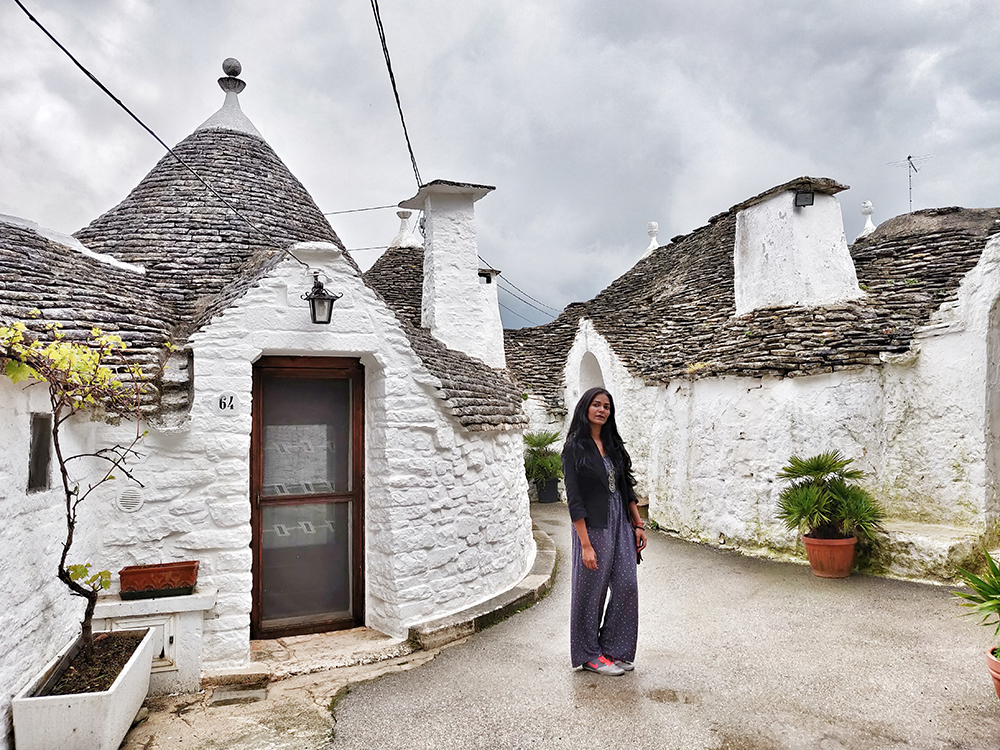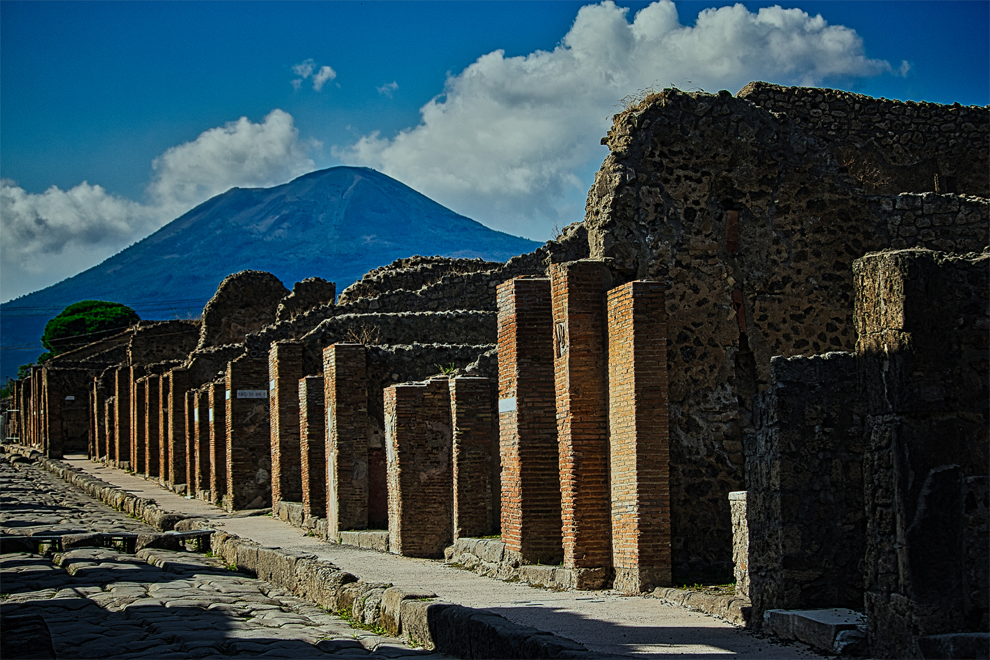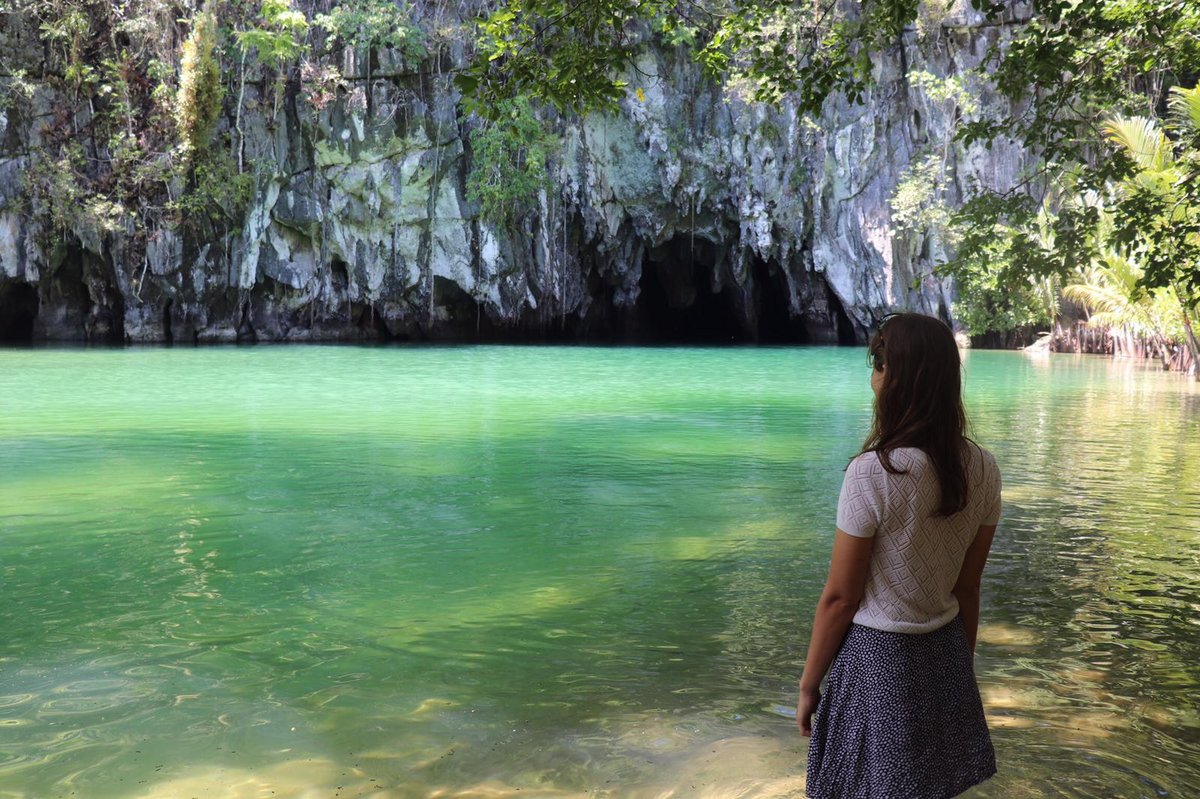WHS On-Campus
Established in 1999, WHS On-Campus was the first graduate programme in the world to design its curriculum around the UNESCO Convention Concerning the Protection of the World Cultural and Natural Heritage. It is a full-time study programme taught on-campus in Cottbus, Germany.
The WHS On-Campus curriculum includes:
- 2 mandatory modules totalling 12 ECTS (Introduction/Coaching and World Heritage Studies - Body of Knowledge);
- 9 compulsory-elective modules totalling 54 ECTS in four module areas (Humanities and Social Sciences; Arts, Architecture and Conservation; Natural Heritage and Cultural Landscapes; Management);
- 2 Study Projects totalling 24 ECTS;
- the Master's Thesis totalling 30 ECTS.
In order to successfully complete the Master's programme, students must achieve 120 ECTS. Graduates are conferred a Master of Arts in World Heritage Studies.
Mandatory Modules
This course gives new students an overview of the study programme, as well as the history and context for the UNESCO World Heritage Convention. It introduces the key concepts and approaches related to the protection of cultural and natural heritage and the UNESCO World Heritage Convention. Students will learn about the function and structure of the UN system and UNESCO, the connections between World Heritage and issues of human rights, cultural diversity, intangible heritage, and other aspects of international relations.
In this course, students will be familiarised with various aspects of academic work: research methods, library resources, collection and critical analysis of information, and academic writing. The course also offers training in the preparation and delivery of public presentations and collaborative work.
Study projects enable students to apply the skills and knowledge they have acquired in the classroom within the context of heritage and cultural management, preparing them for professional work in the field. Students will learn how to assess heritage sites and work with a wide range of stakeholders, as well as how to identify threats and opportunities, formulate strategic plans and develop, through individual and teamwork, viable models for the protection and promotion of heritage sites. Students will gain skills in scientific research, critical analysis, communication, problem solving, concept development and project management. Study projects offer opportunities to participate in excursions and site visits, allowing students to connect theory, experiential learning and professional practice.
Recent study projects have included:
- Studio Bagan: Building in Heritage Context: Bagan, Myanmar
- Tattoo Taboo: London, England
- Decision-Making Procedures of the World Heritage Committee. Krakow, Poland
- 42COM – Behind the Scenes. Manama, Bahrain
- Stories We Sell: Tourism Marketing for World Heritage Sites. Assisi, Italy
- Kuldiga: In Search of Outstanding Universal Value. Kuldiga, Latvia
- Applications to the World Monument Watch List
- The Role of Memorials in Post-Conflict Societies: The Changing Memorial Landscapes of Berlin
- Whose Heritage? Representation of Migration in the “Postcolonial” Museum
- “My Heritage” in Cottbus
- Denkmalpflege: Hidden Traces. Architectural Conservation – Heritage in Context
If you activate the integrated Youtube videos, you consent to the transfer of personal data to the provider and to the use of cookies to save the setting. Information of the BTU on data protection
If you activate the integrated Youtube videos, you consent to the transfer of personal data to the provider and to the use of cookies to save the setting. Information of the BTU on data protection
The Master’s thesis is a culmination of the academic and learning experiences that have been acquired through the WHS programme. The thesis should show the student’s ability to independently and critically research a problem. This research can be theoretical or applied in nature as regards to the assessment, protection, management and presentation of cultural or natural heritage. The thesis should demonstrate the student's ability to appropriately document the results of their study, while also applying scientifically founded research methods.
The topic of the Master’s thesis can be chosen from any of the four study areas of the curriculum. Students will work under the guidance of two academic advisors. The final exam consists of the evaluation of the written work and its oral presentation.
Current students can access additional information in the moodle course "Information for Students of World Heritage Studies".
Module Area 1: Humanities and Social Sciences
This study area integrates the academic disciplines of Cultural Studies, Sociology, History, Law and Political Sciences, in order to reflect the multi-layered, dynamic nature of heritage. Students will understand the complex processes that generate and influence the transmission of heritage values in the local and global contexts.
This course introduces a wide range of theoretical approaches to culture as dynamic construct. It aims to broaden students’ critical thinking on the nature and practice of heritage, both within UNESCO’s programmes and legal instruments, and within society at large.
Students will acquire skills to interact and communicate effectively with people of diverse cultural backgrounds. The course presents strategies to improve performance in intercultural communication, such as negotiation, leadership, team building or problem solving, and develops competencies for dealing with cultural diversity at work.
This course explores the role of culture in international politics, as well as the defining attributes of the 21st century global society. Students will focus on concepts of ethnicity, identity and diversity, with reference to colonial history, post-colonial nation-building processes and the construction of otherness.
Students will gain an understanding of functions and terminologies within general law, as well as an overview of the international conventions for the protection of cultural and natural resources. The course examines varied aspects of environmental law, international cultural heritage legislation, addressing the attributes and limitations of these instruments within heritage practice.
Based within a sociological theoretical framework, debates on social change, economic phenomena or globalised economies are addressed. The course expands upon themes of labour markets, economic production and management systems, migration and social cohesion within the current socio-economic climate.
Module Area 2: Arts, Architecture and Conservation
This study area focuses on built heritage, exploring the relationship between the fabric, setting and uses of architectural structures. Students will understand basic conservation concepts and approaches, and will examine built heritage in its larger context. Particular attention is given to the historic urban landscapes approach, the multi-layer structure and dynamic development of sites.
This course offers an introduction to the fundamental concepts, principles and methods in architectural conservation. Students will understand the challenges in conserving the cultural significance of places, as well as various design and building approaches in historic contexts.
This course presents the evolution of architectural forms and design styles in various European countries, from antiquity to the modern era, with references to their particular historical and cultural contexts. In a field session, students will also practice the skills of recording and analysing buildings.
This course focuses on main concepts of museology: the role of the contemporary museum and its development, museum design and architecture, memory, interpretation and presentation techniques. The course will seek to understand the museum as a medium, working to define theoretical and practical perspectives on exhibitons, collections and display.
This course provides insights into the main drivers of urban change, together with the current and future challenges for sustainable urban development. Students will learn to analyse urban structures and functions. They will understand the concepts, analytical methods and tool for urban and regional planning, as well as the impact of urban development on heritage sites.
This course aims to raise awareness about architecture within a broad spectrum, as a way to explore the relationship between humans and their living environment. Students will explore architectural, urban and spatial concepts, examining the complex layers identified in built structures, such as the material, the social and the temporal.
Module Area 3: Natural Heritage and Cultural Landscapes
This study area focuses on the conservation of natural heritage. Students will acquire basic knowledge in the field of environmental sciences, understanding the elements and processes that govern our ecosystems. Courses reflect upon varied perceptions of nature, the diverse relationships between humans and the environment, as well as the importance of nature conservation and environmental sustainability.
This course outlines the fundamental approaches of biodiversity concerning genetics, species and ecosystem diversity, and provides a worldwide overview of ecological problems in different ecosystem types. Students will understand the relation between ecology, nature conservation and resource management, and will learn to outline guidelines for the sustainable protection and management of biodiversity.
This course focuses on UNESCO’s approach to cultural landscapes as a distinct heritage category illustrating the “combined works of nature and man”. It introduces different forms of landscape design, land use and symbolic associations with the environment, revealing the complex factors that generate them. Students will gain an understanding of the dynamic character of cultural landscapes, as well as key principles and the role of local communities in the protection and management of these sites.
“How to talk about nature?” is closely linked to the question of what “nature” is, how it is construed and in which way we act with, in or against it. It is a question that is ontological and epistemological at the same time, it is about how we imagine nature “to be” and how we conceive knowledge about nature. The ideas about this entwinement are manifold over time and in space, different cultures have developed different ways of thinking and also practices of how to deal with a culture/nature distinction. Another important conceptual issue is how nature and technology are related, in contemporary debates for instance, "nature" is often identified with "environment" and as such inescapably entangled with its cultural, political, and technological context. Is the use of technology in “nature” then a threat or an opportunity to build a genuinely sustainable world?
Module Area 4: Management
This study area aims to equip students with professional skills required in the management of cultural and natural heritage sites. Topics range from strategic planning, project management, financing, administration, marketing, visitor management and public relations. The importance of facilitating partnerships between the increasing number of stakeholders and of balancing conservation and development goals, whilst upholding the authenticity and integrity of heritage sites, is particularly emphasised.
Successful management is based on the sustainable use and preservation of heritage sites. This course provides students with the necessary tools to develop strategic management frameworks and plans for World Heritage sites, as well as other places of cultural and natural significance. Aspects such as sustainable use and development planning, participatory decision-making, risk preparedness and visitor management are presented in relation to heritage sites.
This course provides students with the necessary tools to develop and implement projects in the broader cultural sector, as well as guidelines for best practices within cultural institutions (i.e. heritage administration, museums, foundations and organisations of fine and performing arts). Students will understand the key concepts and basic format of project management, including learning how to plan, implement, monitor and evaluate projects in the cultural sector.
With the growth of the modern mass tourism industry and its alarming impacts on World Heritage sites, heritage managers must be aware of the trends, strategies and good practices which may minimise negative impacts, protect the integrity and authenticity of sites, and balance visitor use with heritage preservation and the needs of local communities.
Students will acquire basic skills in budgeting, financial management and fundraising. They will learn how to estimate, structure and acquire budgets, and understand diverse global and regional approaches to financing. The course emphasises the budgeting and financial administration requirements of major cultural heritage donor organisations such as the EU and World Bank.
This course provides students with the methods, tools and skills necessary to improve the visibility of heritage sites, both locally and internationally. Students will learn how to develop and implement marketing strategies, as well as how to use new media to promote World Heritage sites. They will also acquire communication and conflict mitigation skills required for public relations with stakeholders.
Based on the approaches established for environmental impact assessment, the course describes the phases required for assessing the type, scale and severity of impact that a proposed development project may have on heritage values. Students will understand the theories and practices required for informed impact assessment, mitigation and adaption proposals, as well as development management and watch-briefs required for project implementation.
The brief module descriptions contained on this website are non-binding. Changes to the module catalogue are possible. For binding module descriptions, please see the Information Portal: Teaching.
If you activate the integrated Youtube videos, you consent to the transfer of personal data to the provider and to the use of cookies to save the setting. Information of the BTU on data protection




